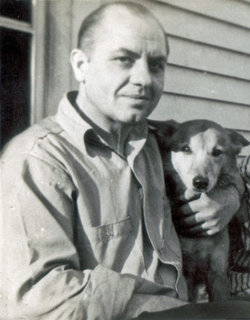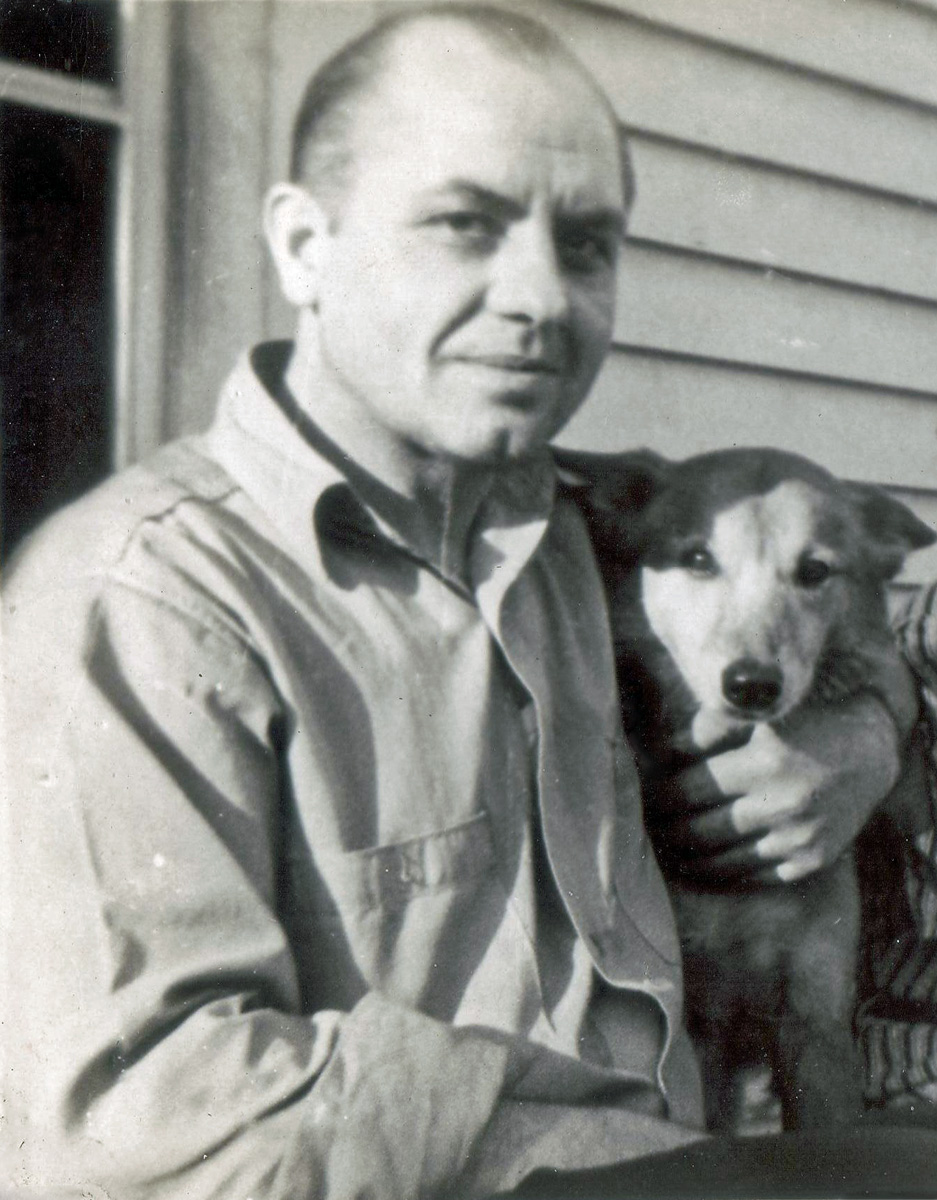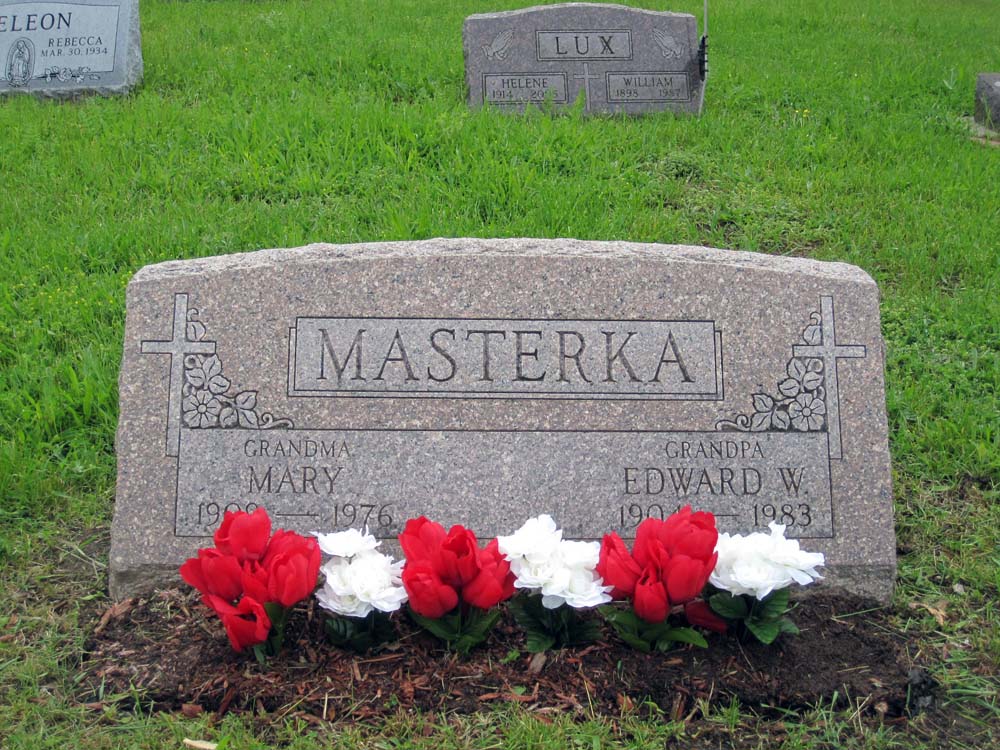He started work as a farm laborer for a man named John Ward. While the work had to be very difficult, Ed remembered it as a good job. Mr. Ward taught him the trade of agriculture, and provided Ed with both a salary and food for the family. Later, Eddie joined the construction crew which built the beautiful stone wall surrounding Nazareth College. The wall still stands in 2020.
In 1919, Eddie went to work at Sutherland Paper Mill as a machinist's apprentice. As time went on, he became a favorite of company owner, Louis W. Sutherland. "L.W," as Mr Sutherland was known to his employees, valued Ed's skill with machines and with people. He was a dependable problem solver with both, and it was as much to Ed's mechanical skill as anything else that Sutherland perfected the art of creating wax cartons. In the era before plastic, wax cartons became the best way to sell most dairy and refrigerated products. Eddie was rewarded by being given a job in the front office. He purchased the necessary white shirts and ties, and passed a typing course. However, his heart was really with the machines, not the paperwork. L.W. was kind enough to put him back on the mill floor, where Ed remained until retiring from the company after 50 years.
In his private life, Ed was a terrific baseball player, and he played with a farm club league. He must have been a good dancer, too, because he and his wife Mary won first prize in a dancing contest doing the "Charleston."
Eddie was known for his generosity, both with money, and with helping others in getting a good job at the mill. He always carried a package of Camel's, not because he smoked but in case someone asked him for a cigarette. He was also particular that he always wore a tie and a fedora hat, no matter what the occasion was. He had remarkably good manners with everyone he met.
In his later life he doted on his grandchildren, and he was always happy to join in any game they wanted to play. As the children grew older, he did his best to attend special events and to write letters when they left for college. For several decades he cared for Mary who suffered many illnesses. After her passing Ed began to slow down a bit, but still enjoyed listing to his transistor radio, sitting in the backyard with his next door neighbor, and having a hamburger at Schwartz's on Saturday. He was a simple man who worked hard and was enjoyable to be around. Ed slipped away a few days after his 79th birthday.
He started work as a farm laborer for a man named John Ward. While the work had to be very difficult, Ed remembered it as a good job. Mr. Ward taught him the trade of agriculture, and provided Ed with both a salary and food for the family. Later, Eddie joined the construction crew which built the beautiful stone wall surrounding Nazareth College. The wall still stands in 2020.
In 1919, Eddie went to work at Sutherland Paper Mill as a machinist's apprentice. As time went on, he became a favorite of company owner, Louis W. Sutherland. "L.W," as Mr Sutherland was known to his employees, valued Ed's skill with machines and with people. He was a dependable problem solver with both, and it was as much to Ed's mechanical skill as anything else that Sutherland perfected the art of creating wax cartons. In the era before plastic, wax cartons became the best way to sell most dairy and refrigerated products. Eddie was rewarded by being given a job in the front office. He purchased the necessary white shirts and ties, and passed a typing course. However, his heart was really with the machines, not the paperwork. L.W. was kind enough to put him back on the mill floor, where Ed remained until retiring from the company after 50 years.
In his private life, Ed was a terrific baseball player, and he played with a farm club league. He must have been a good dancer, too, because he and his wife Mary won first prize in a dancing contest doing the "Charleston."
Eddie was known for his generosity, both with money, and with helping others in getting a good job at the mill. He always carried a package of Camel's, not because he smoked but in case someone asked him for a cigarette. He was also particular that he always wore a tie and a fedora hat, no matter what the occasion was. He had remarkably good manners with everyone he met.
In his later life he doted on his grandchildren, and he was always happy to join in any game they wanted to play. As the children grew older, he did his best to attend special events and to write letters when they left for college. For several decades he cared for Mary who suffered many illnesses. After her passing Ed began to slow down a bit, but still enjoyed listing to his transistor radio, sitting in the backyard with his next door neighbor, and having a hamburger at Schwartz's on Saturday. He was a simple man who worked hard and was enjoyable to be around. Ed slipped away a few days after his 79th birthday.











